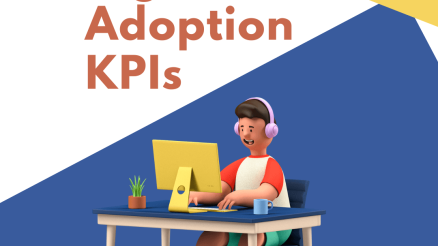Disruptive startups have become a buzzword in the business world, with their innovative approaches and ability to challenge the status quo.
These startups have transformed industries, created new markets, and forced established companies to adapt and innovate.
From ride-sharing services to streaming platforms, these startups have revolutionized the way we live, work, and consume products and services.
This post explores the disruptive startups meaning, its characteristics, examine examples of successful disruptive startups, and discuss the benefits and drawbacks of this approach.
We will also provide insights into fostering a disruptive startup culture and the future possibilities and challenges that lie ahead.
Let’s start reading
Disruptive startups meaning
A disruptive startup is a company that enters an existing market or creates a new market with an innovative approach, often challenging the established companies in the industry.
These startups introduce new products, services, or business models that significantly change the way consumers or businesses perceive and use a particular product or service.
Disruptive startups often leverage technology to create a competitive advantage and to provide more convenient, affordable, or accessible solutions to a problem or need.
Disruptive startups have the potential to transform industries, create new markets, and drive economic growth.
Brief history of disruptive startups
Disruptive startups have been around for decades, but the term “disruptive innovation” was first coined by Harvard Business School professor Clayton Christensen in his 1997 book “The Innovator’s Dilemma.” Christensen defined disruptive innovation as an innovation that creates a new market or value network and eventually disrupts an existing market or value network, displacing established market-leading firms, products, and alliances.
The first major disruptive startup was probably Apple, which transformed the computer industry with its Macintosh computer in 1984. Other early disruptive startups include Amazon, which disrupted the retail industry with its online marketplace in the mid-1990s, and eBay, which created a new market for online auctions.
In the early 2000s, disruptive startups in the form of social media platforms, such as Facebook and Twitter, emerged, transforming the way people communicate and share information. In the late 2000s, disruptive startups in the sharing economy, such as Uber and Airbnb, disrupted the transportation and accommodation industries, respectively.
Today, disruptive startups continue to emerge in various industries, including fintech, healthcare, and renewable energy, to name a few. Disruptive startups have become a vital part of the global economy, driving innovation and growth, and challenging the status quo.
Impact of disruptive startup on economy of the world
Disruptive startups have a significant impact on the global economy, driving innovation, creating new markets, and generating jobs and economic growth. Here are some of the ways in which disruptive startups are affecting the economy:
- Job creation: Disruptive startups create jobs in various industries, such as technology, transportation, hospitality, and healthcare. These startups often require a diverse range of skills and talents, providing employment opportunities for people with different backgrounds and expertise.
- Economic growth: Disruptive startups can stimulate economic growth by creating new markets and increasing competition. They can also attract investment, both domestic and foreign, which can lead to more job creation and economic activity.
- Increased productivity: Disruptive startups often use technology to streamline processes and improve efficiency, leading to increased productivity and output.
- Industry transformation: Disruptive startups can transform entire industries, leading to the creation of new products, services, and business models. This can have a ripple effect, driving innovation and growth across multiple industries.
Characteristics of Disruptive Startups
There are some common characteristics of disruptive startups:
Innovation and creativity
Innovation and creativity are key characteristics of disruptive startups. Disruptive startups are often founded by entrepreneurs who identify a gap in the market or a problem that has not been adequately addressed by existing solutions. To fill this gap, disruptive startups must come up with innovative and creative ideas that challenge the status quo and provide a new way of solving a problem or meeting a need.
Creativity involves thinking outside the box and coming up with novel ideas and approaches. Disruptive startups often need to be creative to develop unique solutions that stand out from the competition. Creativity can involve reimagining an existing product or service, such as redesigning the user experience or incorporating new features that make the product more appealing.
Challenging the status quo
Disruptive startups often enter an existing market or create a new market with a different approach or value proposition than the established players. By doing so, they challenge the status quo, which is the prevailing way of doing things or the accepted norms within an industry.
For example, disruptive startups in the transportation industry, such as Uber and Lyft, challenged the status quo of traditional taxi services by offering a more convenient and affordable alternative. Similarly, disruptive startups in the music industry, such as Spotify, challenged the status quo of purchasing music by offering a subscription-based streaming service.
Disruptive startups challenge the status quo by introducing new technologies, business models, or services that provide greater value or better meet the needs of consumers. By doing so, they disrupt the existing market and force established players to adapt or risk becoming obsolete.
Addressing a unique problem or need
Disruptive startups often identify a gap in the market or a problem that has not been adequately addressed by existing solutions. To fill this gap, they must come up with innovative and creative ideas to solve a problem or meeting a need.
For example, Airbnb, a disruptive startup in the hospitality industry, identified a need for more affordable and personalized accommodation options for travelers. By allowing homeowners to rent out their spare rooms or entire homes, Airbnb created a new market for short-term lodging that provided a more unique and local experience for travelers.
Similarly, Tesla, a disruptive startup in the automotive industry, identified a need for more sustainable and efficient transportation options. By developing electric vehicles with advanced technology and design, Tesla disrupted the traditional automotive industry and created a new market for electric vehicles.
Utilizing technology to create a competitive advantage
Disruptive startups often leverage technology to create innovative and efficient solutions that provide a competitive advantage over established players in the industry. Technology can also help disruptors to overcome barriers to entry, such as high startup costs, regulatory hurdles, or a lack of brand recognition.
For example, Netflix, a disruptive startup in the entertainment industry, utilized technology to offer a more convenient and personalized streaming service than traditional cable or satellite TV providers. Netflix’s algorithm-driven recommendation system, user-friendly interface, and on-demand content delivery disrupted the traditional TV industry and made it a leader in the streaming market.
Similarly, Amazon, a disruptive startup in the retail industry, utilized technology to create a more efficient and customer-centric e-commerce platform. Amazon’s sophisticated data analytics, inventory management system, and logistics infrastructure enabled it to offer a wider selection of products, faster delivery, and lower prices than traditional brick-and-mortar retailers.
Examples of Successful disruptive startups
These disruptive startups have all utilized innovative business models, technologies, and approaches to challenge the status quo and provide unique solutions to previously unmet needs in their respective industries.
Airbnb
Airbnb is a home-sharing platform that has disrupted the traditional hotel industry. By allowing people to rent out their homes or spare rooms to travelers, Airbnb has created a more affordable and personalized alternative to traditional hotels. Airbnb has also created new economic opportunities for homeowners, and has changed the way people travel and experience new places.
Netflix
Netflix is a streaming video service that has disrupted the traditional cable and TV industry. By offering on-demand streaming of TV shows, movies, and original content, Netflix has created a more convenient and personalized way for people to watch TV. Netflix has also created new economic opportunities for content creators, and has changed the way people consume entertainment.
Tesla
Tesla is an electric vehicle manufacturer that has disrupted the traditional automotive industry. By developing electric vehicles with advanced technology and design, Tesla has created a more sustainable and efficient way for people to travel. Tesla has also created new economic opportunities for renewable energy and battery storage, and has changed the way people think about transportation.
Spotify
Spotify is a music streaming service that has disrupted the traditional music industry. By offering on-demand streaming of music and podcasts, Spotify has created a more personalized and convenient way for people to listen to music. Spotify has also created new economic opportunities for musicians and content creators, and has changed the way people discover and consume music.
SpaceX
SpaceX is disrupting the space industry by developing reusable rockets and spacecraft that significantly reduce the cost of spaceflight. This has enabled SpaceX to win contracts from NASA and other organizations, and to launch satellites and other payloads at a fraction of the cost of traditional rockets. Additionally, SpaceX has ambitious plans for colonizing Mars and establishing a permanent human presence on the planet, which could have transformative effects on space exploration and human society.
Square
Square is disrupting the payments industry by offering a mobile payment processing system that enables small businesses to accept credit card payments anywhere. This has removed many of the barriers to entry that small businesses face when trying to accept credit card payments, and has democratized access to payment processing. Square has also expanded into other financial services, such as business loans and payroll management, which has further disrupted the traditional banking industry.
Warby Parker
Warby Parker is disrupting the eyewear industry by offering a direct-to-consumer model that eliminates many of the markups and inefficiencies of the traditional eyewear retail industry. Warby Parker offers stylish and affordable glasses and sunglasses, and has also pioneered new technologies such as virtual try-on and at-home try-on to make it easier for people to find the right glasses.
Robinhood
Robinhood is disrupting the financial industry by offering commission-free stock trading and a user-friendly mobile app that has attracted millions of users, particularly young investors. This has removed many of the barriers to entry that traditionally prevented small investors from participating in the stock market, and has also put pressure on traditional brokerage firms to lower their fees and improve their user experience.
Coursera
Coursera is disrupting the education industry by offering an online learning platform that provides access to courses from top universities and institutions around the world. This has democratized access to education and has made it easier for people to gain new skills and knowledge. Coursera has also partnered with businesses and governments to offer workforce training programs, which has further disrupted traditional models of education and training.
How to foster a disruptive startup culture
Following are some strategies that help us to initiate a disruptive startup and promote culture of thinking out of box.
1. Encouraging innovation and experimentation
A key aspect of fostering a disruptive startup culture is to encourage innovation and experimentation. This means creating an environment where employees feel empowered to take risks, try new things, and challenge the status quo. Leaders can foster this culture by setting aside dedicated time and resources for innovation, encouraging cross-functional collaboration, and celebrating and rewarding creative thinking and problem-solving.
2. Focusing on solving real-world problems
Successful disruptive startups are often focused on solving real-world problems that have not been adequately addressed by existing solutions. To foster a disruptive startup culture, leaders should encourage their team to identify and tackle important problems in their industry or community. This can involve conducting extensive research and engaging with customers and stakeholders to gain a deep understanding of the problem and potential solutions.
3. Building a diverse and inclusive team
Building a diverse and inclusive team is crucial for fostering a disruptive startup culture. Research has shown that diverse teams are more innovative and effective at problem-solving than homogenous teams. Leaders can foster diversity and inclusion by actively recruiting and hiring people from underrepresented groups, creating a safe and inclusive work environment, and providing training and support for team members from diverse backgrounds.
4. Embracing failure as a learning opportunity
Disruptive startups often face many challenges and setbacks along the way. To foster a culture of innovation and creativity, leaders should embrace failure as a learning opportunity rather than a sign of weakness. This means encouraging employees to take risks and try new things, even if they may not succeed. When failures do occur, leaders should encourage their team to reflect on what went wrong and how they can improve in the future. This creates a culture of continuous improvement and encourages a willingness to take calculated risks in pursuit of disruptive innovation.
Drawbacks of Disruptive Startups
Despite the positive impact of disruptive startups on economy and people lives there are few challenges that are posed by such disruptions. Let’s discuss some common challenges and drawbacks of startups:
Economic instability
Disruptive startups have the potential to create economic instability, particularly in industries that they disrupt. For example, the rise of online retailers has had a significant impact on traditional brick-and-mortar retailers, leading to store closures and job losses. This can have a ripple effect on the broader economy, particularly in regions where a particular industry is a major employer. As such, it’s important for policymakers and business leaders to consider the potential economic impacts of disruptive startups and work to mitigate any negative effects.
Job loss in certain industries
One of the most significant drawbacks of disruptive startups is the potential for job loss in certain industries. As companies adopt new technologies and business models, they may need fewer employees or may require employees with different skill sets. This can result in job displacement for workers in industries that are being disrupted. It’s important for businesses and policymakers to consider how to support workers who may be impacted by disruptive startups, such as by providing training and education programs to help them acquire new skills and transition to new jobs.
Unsustainable
While disruptive startups have the potential to drive significant innovation and economic growth, not all startups will be successful in the long term. Some may struggle to scale their business models or may face stiff competition from established players in their industry. Additionally, some startups may be pursuing business models that are not sustainable in the long term, such as by relying on unsustainable growth strategies or ignoring environmental or social impacts. As such, it’s important for startups to carefully consider the long-term sustainability of their business models and for investors and policymakers to scrutinize their plans for growth and impact.
Final words
Disruptive startups have had a significant impact on the economy and society, driving innovation and pushing boundaries in a range of industries. While they offer many benefits, including new job opportunities and improved products and services, there are also potential drawbacks, such as economic instability and job displacement. By balancing the benefits and drawbacks of disruptive startups and managing change at startups, we can harness their potential to create a better future for all.



